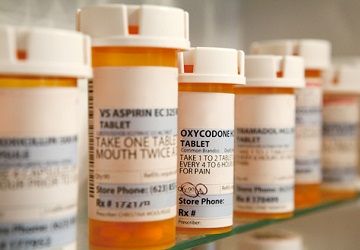State Dental Association Creates 'First Of Its Kind' Set Of Opioid Guidelines
New Jersey has one of the highest rates of opioid addiction in the nation. In response, the New Jersey Dental Association (NJDA) has issued new guidelines for prescribers.

In response to the state’s addiction epidemic, the New Jersey Dental Association (NJDA) has released what it is calling a first-of-its kind overview of guidelines for the safe prescription of opioids.
The guidelines, according to a news release from the NJDA, cover safe dosing and prescription with the intent of educating prescribers as well as fostering a discussion of the risks among dentists and patients, or parents of patients.
“The NJDA has also developed an informed consent document that provides an opportunity for dialogue between the dentist and patient or the patient’s parent or caregiver about the potential for dependency, misuse and side effects, and the need to properly secure these medicines and dispose of them properly,” the news release said.
The guidelines, which can be read in their entirety here, cover five general categories: efficacy of opioids and non-opiates in acute pain, dispensing opioids, patient communication and informed consent, safe disposal of unused medications, and the state’s prescription monitoring program.
“The NJDA and our member dentists realize there is no ‘single face’ of addiction and abuse, and therefore we must take the necessary steps and have the sometimes difficult discussion with each of our patients prior to prescribing,” said Giorgio T. DiVincenzo, DMD and president of the NJDA, in the organization’s news release. “With the rising tide of abuse in NJ and nationwide, we must be part of the solution.”
New Jersey has been contending with the rise of opioid addiction over the past decade. A recent report by NJ.com, the state’s largest news organization, estimated that if all of New Jersey’s opioid addicts lived in one town, they would total 128,000 in number, comprising the state’s fourth-largest city.
NJ.com also wrote that in 2014, New Jersey experienced more than 3 times the national average in heroin-related deaths, with 781 in total. In 2014, heroin- and opioid-related admissions to New Jersey hospitals accounted for 49 percent of all substance abuse admissions, NJ.com reported.
ACTIVA BioACTIVE Bulk Flow Marks Pulpdent’s First Major Product Release in 4 Years
December 12th 2024Next-generation bulk-fill dental restorative raises the standard of care for bulk-fill procedures by providing natural remineralization support, while also overcoming current bulk-fill limitations.